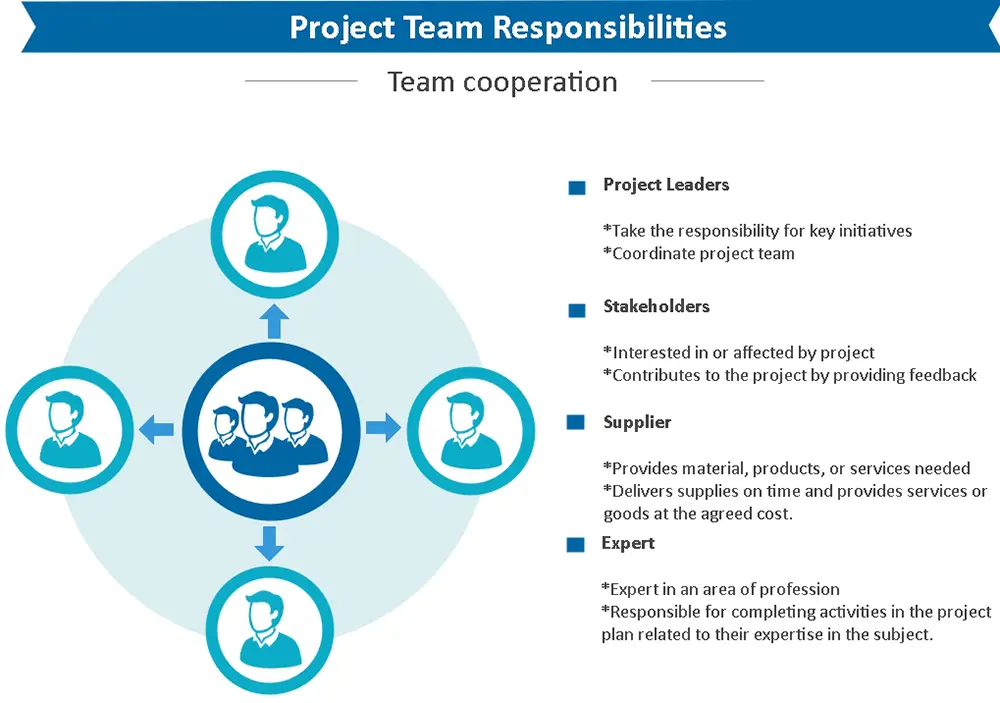Addressing Key Concerns of Stakeholders
A stakeholder in a worker health study is an individual or a group with an interest, or stake in the conduct or outcome of the study.
When workers participate in research studies, the list of stakeholders is long and includes, at a minimum, workers, the employer, insurers, researchers and their institutions, multiple levels of government, funding agencies,
the public/community, unions, Institutional Review Boards (IRBs), and occupational medical professionals.
The concerns and issues important to each stakeholder are listed in this section.
These should be noted and addressed early in the research planning to ensure their inclusion in the overall design, conduct, and publication of the study.
Project Stakeholders
A project should have a primary sponsor or customer. Most projects have many interested parties or stakeholders,
but someone must take the primary role of sponsorship.
The project sponsor usually provides the direction and funding for the project and helps make major decisions.
Project teams do want to meet scope, time, and cost goals, but they must also focus on satisfying project stakeholders and supporting organizational objectives. Project management, therefore, involves several other dimensions or knowledge areas.
Project teams do want to meet scope, time, and cost goals, but they must also focus on satisfying project stakeholders and supporting organizational objectives. Project management, therefore, involves several other dimensions or knowledge areas.
Project Management
Figure 2-5 provides a framework for beginning to understand project management.
Key elements of this framework include the project stakeholders, project management knowledge areas, and project management tools and techniques. Stakeholders are the people involved in or affected by project activities and include the project sponsor, project team, support staff, customers, users, suppliers, and even opponents to the project. People’s needs and expectations are important in the beginning and throughout the life of a project. Successful project managers work on developing good relationships with project stakeholders to ensure their needs and expectations are understood and met. Knowledge areas describe the key competencies that project managers must develop. The center of Figure 2-5 shows the nine knowledge areas of project management. The four core knowledge areas of project management include project scope, time, cost, and quality management. These are considered to be core knowledge areas because they lead to specific project objectives.
Key elements of this framework include the project stakeholders, project management knowledge areas, and project management tools and techniques. Stakeholders are the people involved in or affected by project activities and include the project sponsor, project team, support staff, customers, users, suppliers, and even opponents to the project. People’s needs and expectations are important in the beginning and throughout the life of a project. Successful project managers work on developing good relationships with project stakeholders to ensure their needs and expectations are understood and met. Knowledge areas describe the key competencies that project managers must develop. The center of Figure 2-5 shows the nine knowledge areas of project management. The four core knowledge areas of project management include project scope, time, cost, and quality management. These are considered to be core knowledge areas because they lead to specific project objectives.
Project Management Knowledge

Questions to ask with respect to the ebusiness solution
- What is the purpose of the e-business solution?
- What financial resources are available to pay for the development and ongoing license and operational costs of the solution?
- What human resources are available to develop and operate the solution?
- What existing system and operational constraints might affect the operability of the solution?
- What new systems components are available to assist in the design and construction of the solution?
- What user interfaces will be required?
- What are the management information requirements of the solution?
- What are the volume projections for the solution?
- What market research information is available?
- What will be the impact on other business operations of the introduction of the solution?